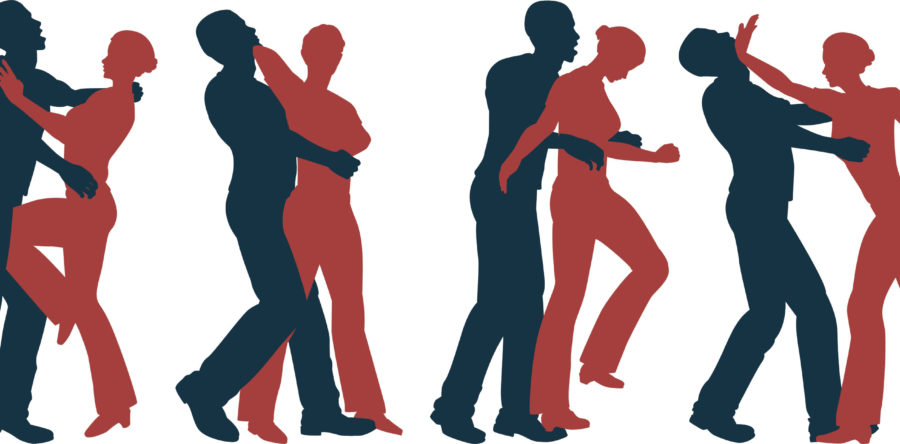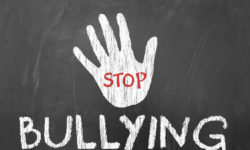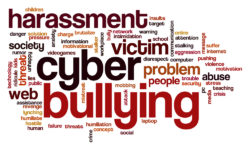Self-defence law in Australia
Self-defence is not about hurting anyone. It is about stopping other people from hurting you or your loved ones and learning techniques to defend yourself in a dangerous or threatening situation.
Most of us will go through life without being a victim of a criminal assault, however, there will also be a significant number of people who will unfortunately face a situation where there is an attempt by another party to inflict personal harm.
Many people think of self-defence as a Karate kick to the groin or jab in the eyes of an attacker. But self-defence should actually mean doing everything possible to avoid a physical confrontation.
Self-defence in the law
The general rule regarding self-defence is that a person is allowed to take any defensive or evasive steps that they believe to be necessary. Unlike other areas of law, self-defence isn’t reliant on a specific approach, but rather is dependent on the facts of the matter with the question left for the courts and a jury to decide.
Is self-defence available for the defence of others?
The term "self-defence" may imply that it is only available when the person is under threat themselves, but in actual fact, it can also be used in the defence of another. Traditionally speaking under the common law, self-defence of another was usually reserved for relationships that fell into the category of child and parent, wife and husband, or ‘master and servant’. However, the position may have changed, and many jurisdictions in Australia allow for a person to use force in defence of another such as s 418(2)(a) of the Crimes Act 1900(NSW).
What is self-defence training?
- Self-Defence is a survival skill
- Self-defence training is an insurance that is mostly ignored, often overlooked, but it very well may insure our personal safety and that of our families
- Self-defence training is like putting on a seat belt in a car, it is a safeguard, a precaution, but it won't prevent an accident
- The ultimate success in self-defence is when nothing happens. Where a potential confrontation is avoided, defused or escaped
- Self-defence training does not guarantee the avoidance of aggressive situations or your survival in a high level violent assault but the learning of effective techniques and strategies surely must influence the balance of the conflict and help ensure our survival
- Self-defence increases your chances of stopping an attack
Use Your Head
If you are being threatened and fight back in "self-defence" there might be a possibility that you could make the situation worse. The attacker is already edgy and pumped up on adrenaline, and who knows what else, may become even more angry and violent. The best way to handle any threat of attack is to try to get away. This way as you are least likely to be injured. If you are a black belt or any other practitioner — no shame in running!
One way to avoid a potential attack before it happens is to trust your instincts. Your intuition, combined with your common sense, can help get you out of trouble. For example, if you're running alone on the grounds and you suddenly feel like you're being watched, that could be your intuition telling you something. Your common sense would then tell you that it's a good idea to get back to where there are more people around.
De-Escalating a Bad Situation
Attackers aren't always strangers. Sadly, people can be attacked by people they know. That's where another important self-defence skill comes into play. This skill is something self-defence experts and negotiators call "de-escalation".
De-escalating a situation means speaking or acting in a way that can prevent things from getting worse. The classic example of de-escalation is giving a robber your money rather than trying to fight or run. But de-escalation can work in other ways, too. For example, if someone harasses you when there's no one else around, you can de-escalate things by agreeing with him or her. You don't have to actually believe the what you are saying, you're simply using words just to get you out of danger.
Something as simple as not losing your temper can de-escalate a situation. Learn how to manage your own anger effectively so that you can talk or walk away without using your fists.
Although de-escalation won't always work, it can only help matters if you remain calm and don't give the attacker any extra ammunition. Whether it's a stranger or someone you thought you could trust, saying and doing things that don't threaten your attacker can give you some control.
Reduce Your Risks
Another part of self-defence is doing things that can help you stay safe. Here are some tips:
- Understand your surroundings. Walk or hang out in areas that are open, well lit, and well traveled. Become familiar with the buildings, parking lots, parks, and other places you walk. Pay particular attention to places where someone could hide — such as stairways and bushes.
- Avoid shortcuts that take you through isolated areas.
- If you're going out at night then travel in a group.
- Make sure your friends and parents know your daily schedule. If you go on a date or with friends, let someone know where you're going and when you expect to return. With mobile technology today it is very simple to stay connected.
- Be sure your body language shows a sense of confidence. Look like you know where you're going and act alert.
- When riding on public transportation, sit near the driver and stay awake. Attackers are looking for vulnerable targets.
- Well carry mobile phone so make sure your parents phone number is on speed dial or on favourites.
- Be willing to report crimes in your neighbourhood to the police.
3 reasons why you should learn self-defence:
We generally hear terrible things happening to people in the news every day. It would be assuring to how to defend yourself against these bad people. There are a large number of people out there who can cause you harm and hurt you, but if you know some self-defence techniques like punching, blocking a punch and kicking, then you have better chances of keeping yourself safe all the time. Remember — It is critical to give yourself a "chance of hope" which is better then nothing.
Knowing that you learn self-defence techniques or moves will definitely give you some kind of boost in your morale. You will definitely gain self-confidence that you never knew you had. The fact is that it feels great to know that you can defend yourself from anyone, anytime of the day.
Undergoing training in martial arts will definitely improve your physical and mental strength. It is something that will keep your muscles healthy and strong. You could develop balance, speed and overall body coordination. Learning martial arts is something that will definitely teach you how to be fierce. But most important of all, it will surely teach you how to be strong to face the opponent or assailant.
Take a Self-defence classes with a reputable club.
The best way to prepare yourself to fight off an attacker is to take self-defence classes with someone who has actually been in the situation before and has a fair amount of experience and knowledge. Text book applications does not work all the time. Nothing better then practical knowledge especially in these circumstances.
Make sure the instructor can teach you how to size up a situation and decide what you should do. Most self-defence classes can also teach special techniques for breaking an attacker's grasp and other things you can do to get away. For example, attackers usually anticipate how their victim might react — that kick to the groin or jab to the eyes, for instance. A good self-defence class can teach you ways to surprise your attacker and catch him or her off guard. Remember, the best defence moves are always simple and effective! Stay away from complex techniques, these only work on a controlled environment.
One of the best things you can gain from self-defence classes is "self-confidence". The last thing you want to be thinking about during an attack is, "Can I really pull this self-defence tactic off?" It's much easier to take action in an emergency if you've already had a few dry runs.
Make sure you get a chance to practice your moves. If you take a class with a friend, you can continue practising on each other to keep the moves fresh in your mind long after the class is over.
Adults and children are encouraged and should definitely come forward to learn self-defence.





